Critical Thinking Word Problems Worksheets for Ages 4-8
7 filtered results
-
From - To
Unlock your child's potential with our engaging Critical Thinking Word Problems Worksheets designed for ages 4-8. These thoughtfully crafted activities cultivate essential reasoning and problem-solving skills through fun, relatable scenarios tailored for young learners. Each worksheet challenges children to apply their critical thinking abilities while enhancing their reading comprehension and mathematical concepts in playful ways. Perfect for classrooms or home learning, these worksheets provide a dynamic approach to developing analytical skills that are vital for lifelong success. Discover the joy of learning through critical thinking with our comprehensive resources, and watch your child thrive as they tackle problems with confidence!


Tricky Problems Worksheet: Part 1
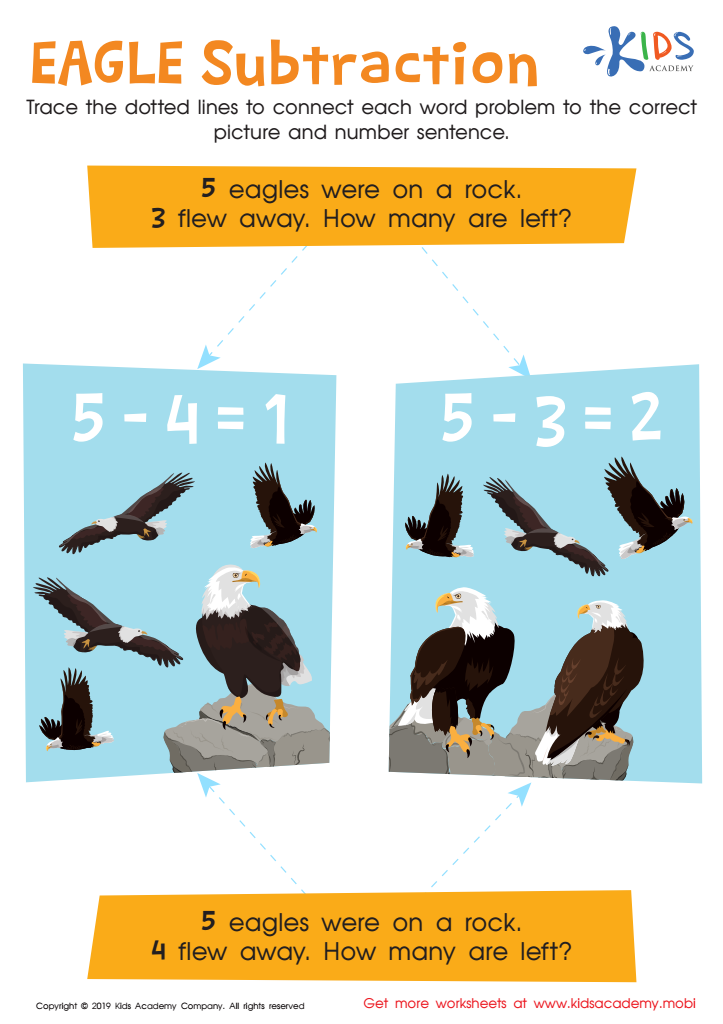

Eagle Subtraction Worksheet
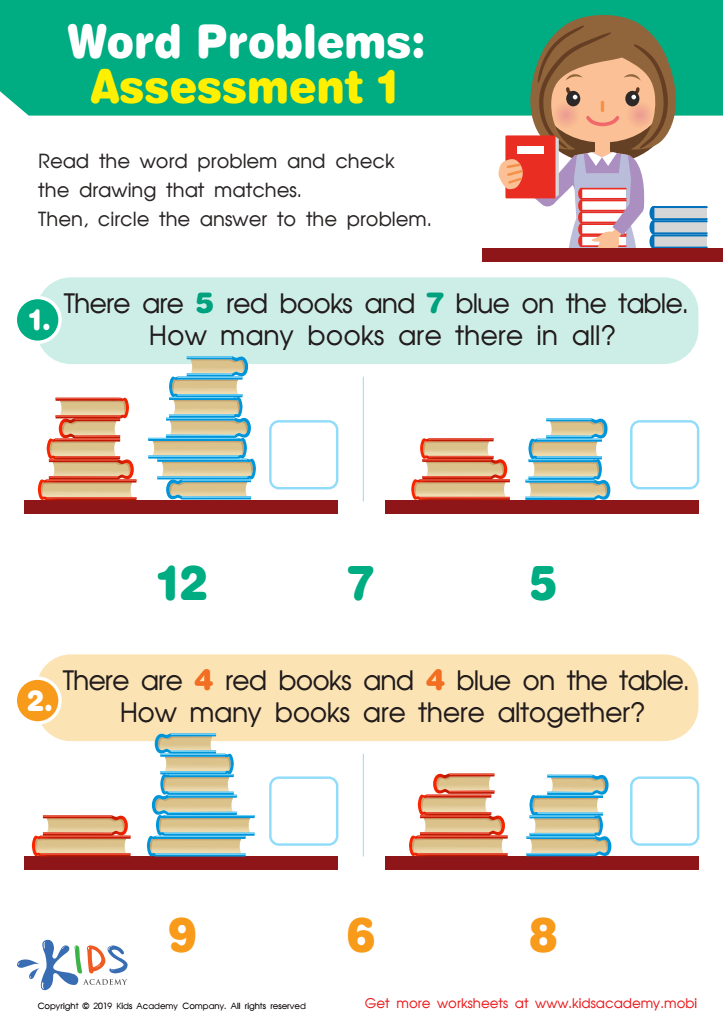

Word Problems: Assessment 1 Worksheet
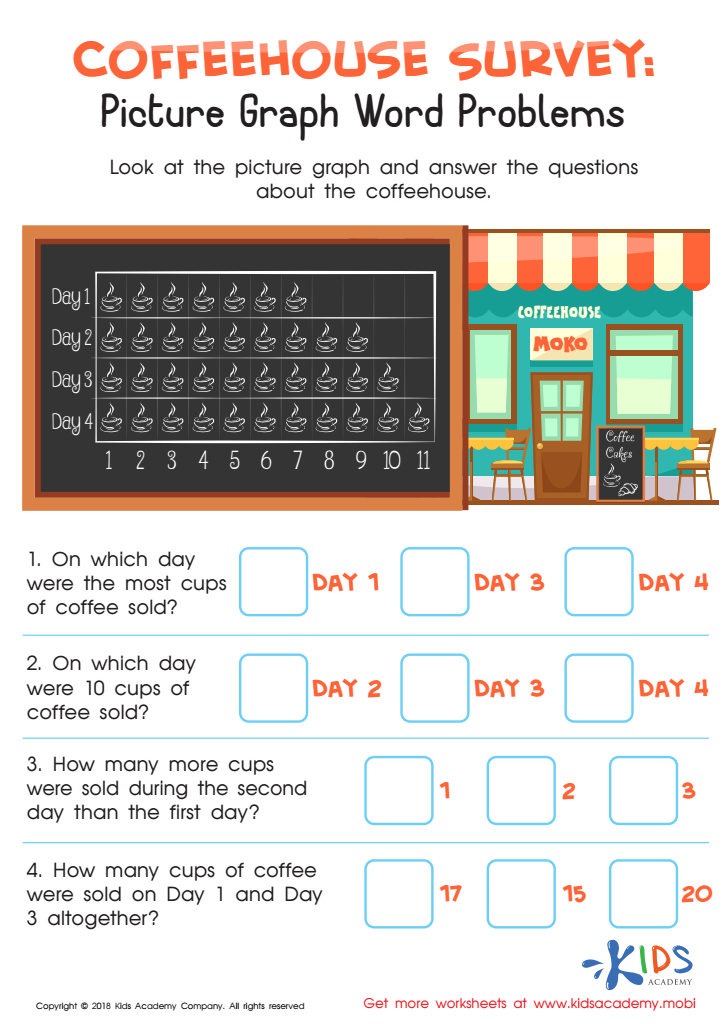

Coffeehouse Survey: Picture Graph Word Problems Worksheet
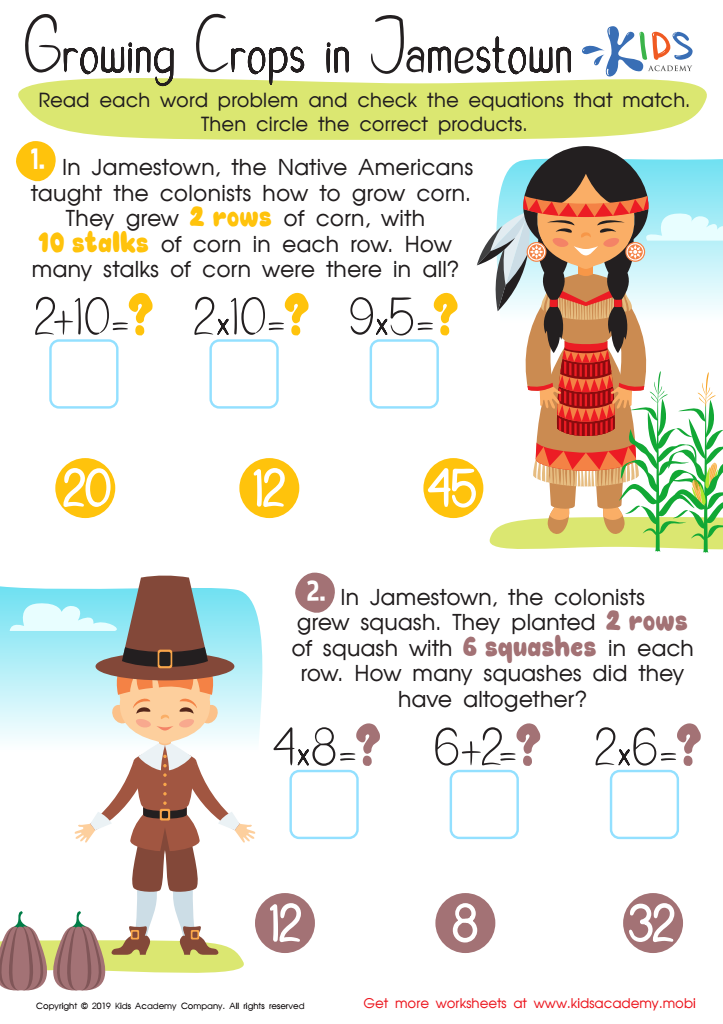

Growing Jamestown Worksheet


Word Problems: Assessment 2 Worksheet
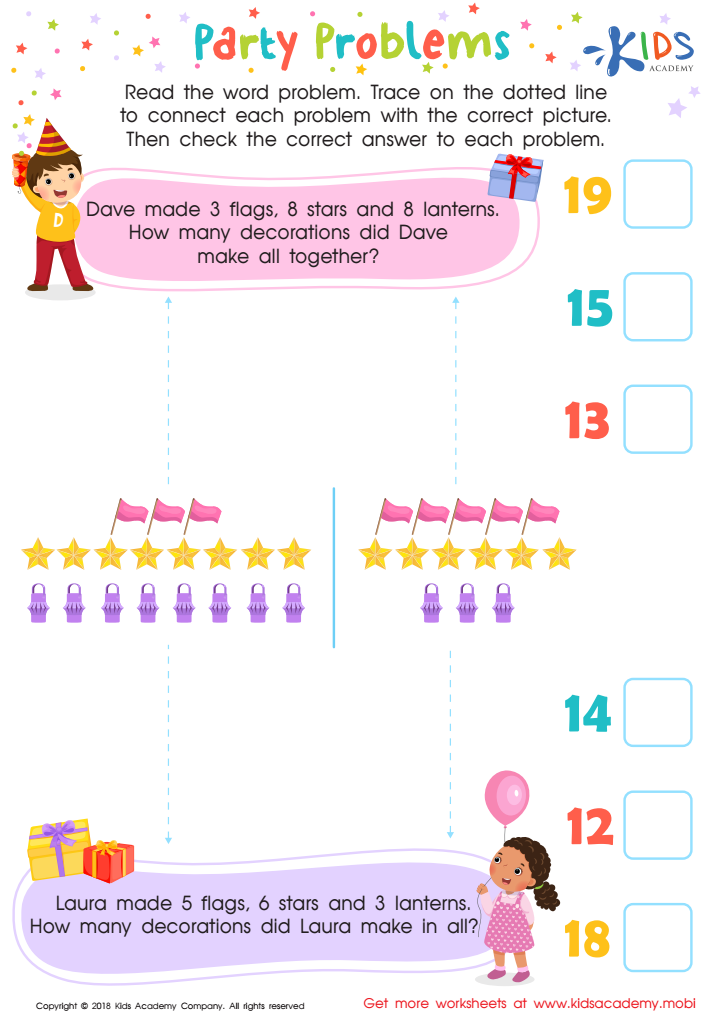

Party Problems Worksheet
Critical Thinking Word Problems are essential for children aged 4-8 as they lay the foundation for important cognitive and problem-solving skills. Engaging with these problems encourages young learners to think beyond rote memorization and apply their knowledge in real-world contexts. Parents and teachers should care because this approach nurtures a child’s ability to analyze, evaluate, and synthesize information, which are crucial skills for lifelong learning.
At this age, children are naturally curious and thrive on exploration. Word problems encourage them to use language and contextual clues, fostering literacy alongside math skills. Moreover, solving these problems helps children develop reasoning skills, as they learn to identify relevant information, break down complex situations, and draw logical conclusions. This is particularly important in a future where technology and critical engagement are both vital and increasingly intertwined.
By incorporating Critical Thinking Word Problems into learning, parents and teachers can create a stimulating environment that enhances children's self-confidence and promotes a love for learning. Overall, prioritizing these problems will not only benefit children academically but also prepare them to navigate the complexities of their daily lives, making them more effective and adaptable thinkers in an ever-changing world.
 Assign to My Students
Assign to My Students





















